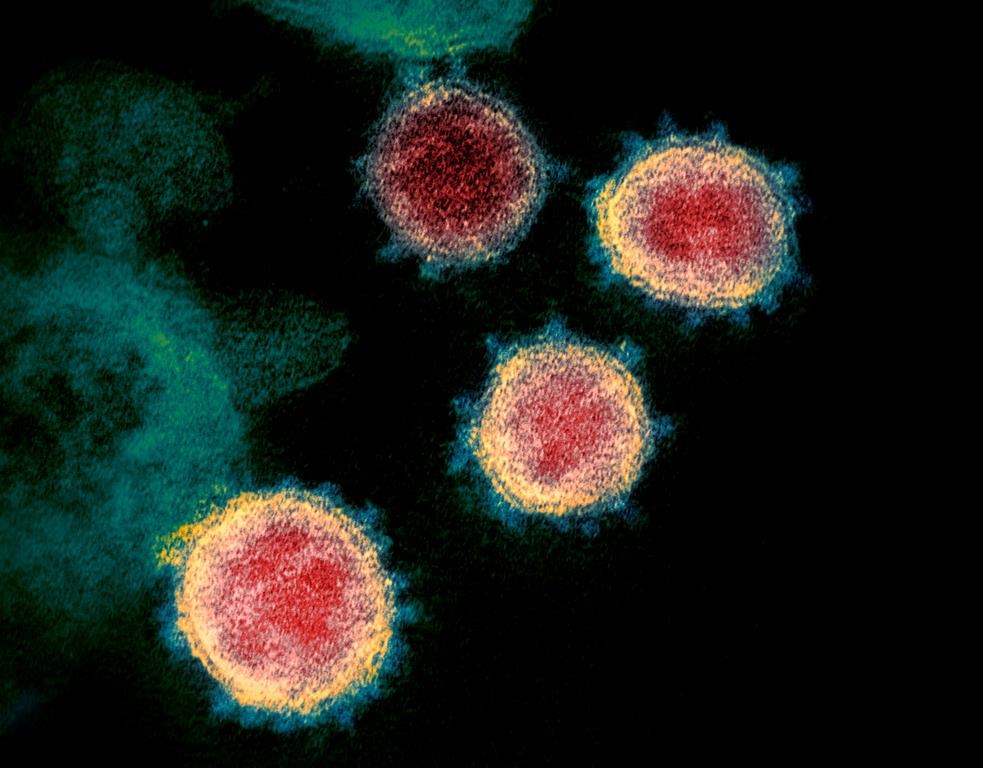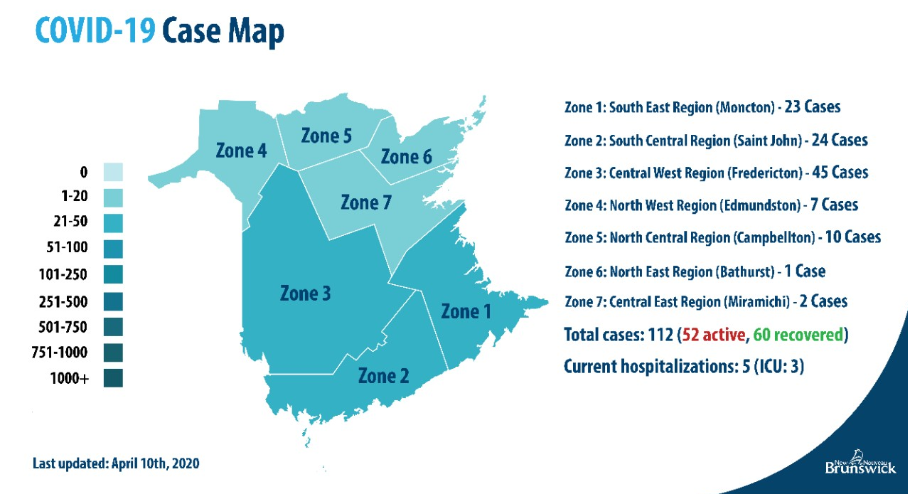One new case of the novel coronavirus was identified in New Brunswick on Thursday, inching the province’s total up to 112.

In a news release Friday, the province said the new case is an individual in their 60s in the Saint John area.
Of the 112 cases in the province, 63 are travel-related, 35 are close contacts of confirmed cases, six are the result of community transmission and eight remain under investigation.
Ten people have been hospitalized and five have since been discharged. Three of the five patients remaining in hospital are in an intensive care unit.
Sixty people have recovered

The most cases have been identified in the Fredericton area, followed by the Saint John area, then the Moncton area.
Here’s a look at the current number of cases by area:
The province released its COVID-19 projection modelling on Thursday, which found between 550 and 1,750 people could die from the virus if public health measures are followed throughout the novel coronavirus pandemic.
The province said if it had not implemented public health measures, as many as 5,600 people could have died.

Get weekly health news
New Brunswick will not be holding a press briefing this weekend to provide an update on COVID-19 preventative measures.
In a statement, Premier Blaine Higgs reminded New Brunswickers they cannot participate in their usual celebrations during the long weekend.
“When you are tempted to visit friends and family, remember our province’s COVID-19 projections – and remember the role you play in keeping those numbers as low as possible,” said Higgs. “By staying at home and practising physical distancing, you are making a difference.”
Chief medical officer of health Dr. Jennifer Russell said that as many people start the long holiday weekend, they can’t lose sight of the fact this disease is in the province.
“It is difficult to not visit our parents, other family members and friends but it would be more difficult to see them become sick because of a decision that was made not to stay home,” said Russell. “Deciding to remain where you live does not mean you are not conveying your love for them. It is the opposite. It means you are conveying your love by protecting them.”
Questions about COVID-19? Here are some things you need to know:
Health officials caution against all international travel. Returning travellers are legally obligated to self-isolate for 14 days, beginning March 26, in case they develop symptoms and to prevent spreading the virus to others. Some provinces and territories have also implemented additional recommendations or enforcement measures to ensure those returning to the area self-isolate.
Symptoms can include fever, cough and difficulty breathing — very similar to a cold or flu. Some people can develop a more severe illness. People most at risk of this include older adults and people with severe chronic medical conditions like heart, lung or kidney disease. If you develop symptoms, contact public health authorities.
To prevent the virus from spreading, experts recommend frequent handwashing and coughing into your sleeve. They also recommend minimizing contact with others, staying home as much as possible and maintaining a distance of two metres from other people if you go out.
For full COVID-19 coverage from Global News, click here.










Comments